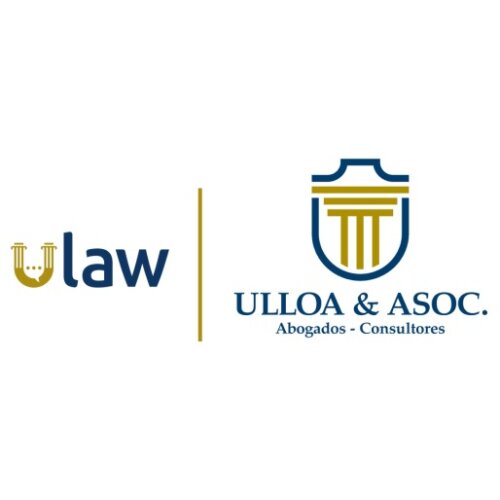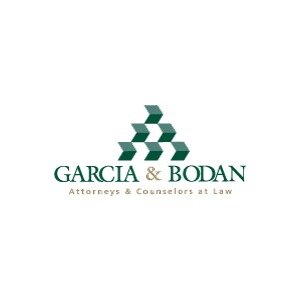Best Public-Private Partnerships (PPP) Lawyers in San Pedro Sula
Share your needs with us, get contacted by law firms.
Free. Takes 2 min.
List of the best lawyers in San Pedro Sula, Honduras
About Public-Private Partnerships (PPP) Law in San Pedro Sula, Honduras
Public-Private Partnerships (PPPs) are collaborative arrangements between government entities and private sector companies that aim to develop, finance, and operate infrastructure projects and public services. In San Pedro Sula, which is Honduras's industrial capital, PPPs are used to address the growing demands for modern infrastructure such as roads, transportation, utilities, healthcare, and education facilities. The PPP framework allows for shared resources, expertise, and risks between the public and private sectors, making it possible to undertake larger projects than the city government could accomplish alone. In Honduras, PPPs are regulated by national law with oversight from dedicated agencies, reflecting a growing trend to attract investment and improve public services efficiently.
Why You May Need a Lawyer
Engaging in a Public-Private Partnership in San Pedro Sula involves navigating complex legal, financial, and operational challenges. Lawyers play a pivotal role in ensuring that both public and private interests are protected. You might need legal assistance in the following situations:
- Drafting and negotiating PPP contracts and agreements to define each party's roles and responsibilities clearly.
- Conducting due diligence on regulatory compliance, land rights, permits, and feasibility studies.
- Resolving disputes that may arise during the construction, operation, or management phases of a project.
- Securing project financing and managing risks related to public funds or private capital.
- Responding to changes in local or national legislation impacting existing or new PPPs.
- Assisting international investors in understanding and complying with local business and tax laws.
A specialized lawyer can help protect your interests throughout the PPP process, from initial proposals to the contract's conclusion or transfer of assets.
Local Laws Overview
PPPs in San Pedro Sula are governed primarily by the national PPP Law, officially known as "Ley de Promoción de la Alianza Público-Privada" (Decree No. 143-2010), with complementary municipal regulations and oversight by the Comisión para la Promoción de la Alianza Público-Privada (COALIANZA). Key aspects include:
- PPP projects must undergo a transparent tender process with public bidding.
- Only projects that meet public interest requirements and show clear benefits to the community are approved.
- COALIANZA is responsible for supervising PPP project structuring, selection, and monitoring at the national level, although municipal authorities also play a role within their jurisdiction.
- Contracts can cover construction, operation, maintenance, and transfer of infrastructure or services, subject to periodic review.
- There are specific tax incentives and financial arrangements for eligible PPP projects, as well as compliance requirements concerning labor laws, environmental regulations, and anti-corruption standards.
- Dispute resolution mechanisms usually involve local courts or agreed arbitration procedures.
Understanding the interplay between national policies and municipal guidelines is essential for successful PPP engagement in San Pedro Sula.
Frequently Asked Questions
What types of projects are usually developed through PPPs in San Pedro Sula?
Projects often include highways, bridges, energy plants, water and sanitation facilities, hospitals, schools, and public transportation systems.
Who oversees PPP projects in San Pedro Sula?
COALIANZA oversees the PPP process at a national level, while the local government of San Pedro Sula is involved in municipal projects, especially those affecting city infrastructure.
What is the typical duration of a PPP contract?
PPP agreements can range from five to 30 years, depending on the scale and complexity of the project.
Can foreign companies participate in PPPs?
Yes, foreign companies can bid for and participate in PPP projects, provided they comply with local legal and regulatory requirements.
How is the bidding process conducted?
The process is public and competitive, involving calls for tenders, submission of technical and financial proposals, and evaluation by relevant authorities.
What are the main risks involved in PPPs?
Risks include project delays, cost overruns, changes in legislation, political instability, and disputes between partners.
Are there any tax benefits for PPP projects?
Certain PPP projects may qualify for tax incentives, exemptions, or deferred payments to promote investment and public service improvements.
What legal documents are needed for a PPP?
Typical documents include a project agreement, concession contract, financing agreements, environmental approvals, and compliance certificates.
How are disputes resolved in PPP agreements?
Disputes may be resolved through local courts or arbitration, depending on the dispute resolution clause included in the contract.
What are the compliance obligations for PPP partners?
All parties must adhere to public procurement laws, labor and environmental standards, anti-corruption measures, and periodic reporting requirements.
Additional Resources
If you need more information or assistance regarding Public-Private Partnerships in San Pedro Sula, the following resources can be helpful:
- COALIANZA (Comisión para la Promoción de la Alianza Público-Privada): The national agency responsible for the structuring, promotion, and oversight of PPPs in Honduras.
- Municipal Government of San Pedro Sula: Offers guidance on PPP projects specific to local needs and infrastructure.
- Ministry of Finance (Secretaría de Finanzas): Provides information on financial regulations, public investment, and incentives for PPPs.
- Local bar associations and law firms: Many have specialists in public contracts, infrastructure law, and foreign investment.
- International agencies: Organizations such as the Inter-American Development Bank (IDB) and the World Bank often offer guidance and reports on best practices for PPPs in Honduras and the region.
Next Steps
If you are considering involvement in a Public-Private Partnership in San Pedro Sula, it is strongly advised to consult with a lawyer experienced in PPP law and local regulations. Start by gathering basic information about your proposed project or partnership goals. Contact a reputable law firm or independent legal counsel to arrange an initial consultation. Bring all relevant documents, such as contracts, business plans, or governmental correspondence, to your meeting. Your lawyer will review your case, outline legal requirements, highlight potential challenges, and assist you throughout the PPP process. Staying informed and proactive will help you achieve your business or public service objectives while minimizing legal risks.
Lawzana helps you find the best lawyers and law firms in San Pedro Sula through a curated and pre-screened list of qualified legal professionals. Our platform offers rankings and detailed profiles of attorneys and law firms, allowing you to compare based on practice areas, including Public-Private Partnerships (PPP), experience, and client feedback.
Each profile includes a description of the firm's areas of practice, client reviews, team members and partners, year of establishment, spoken languages, office locations, contact information, social media presence, and any published articles or resources. Most firms on our platform speak English and are experienced in both local and international legal matters.
Get a quote from top-rated law firms in San Pedro Sula, Honduras — quickly, securely, and without unnecessary hassle.
Disclaimer:
The information provided on this page is for general informational purposes only and does not constitute legal advice. While we strive to ensure the accuracy and relevance of the content, legal information may change over time, and interpretations of the law can vary. You should always consult with a qualified legal professional for advice specific to your situation.
We disclaim all liability for actions taken or not taken based on the content of this page. If you believe any information is incorrect or outdated, please contact us, and we will review and update it where appropriate.

















